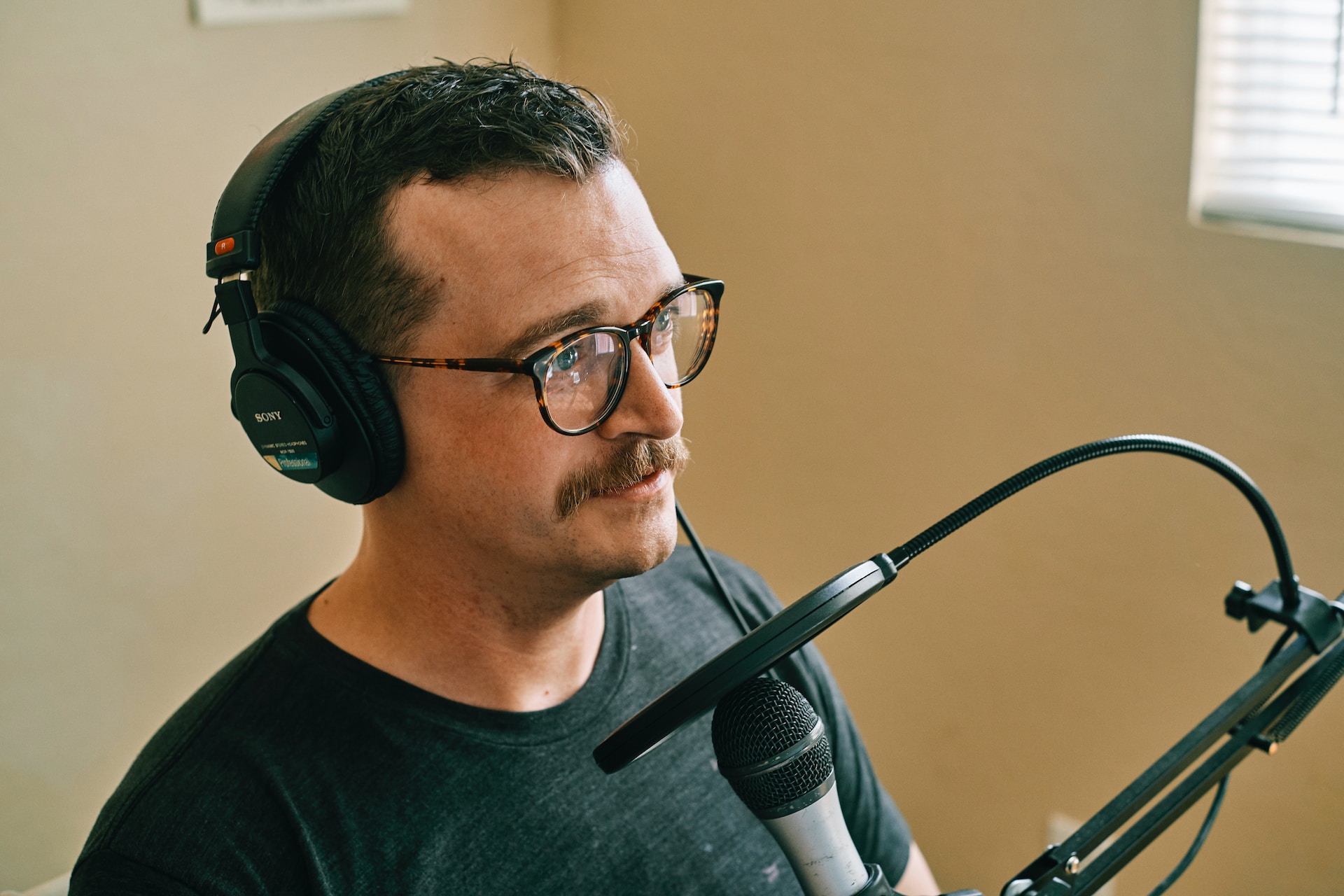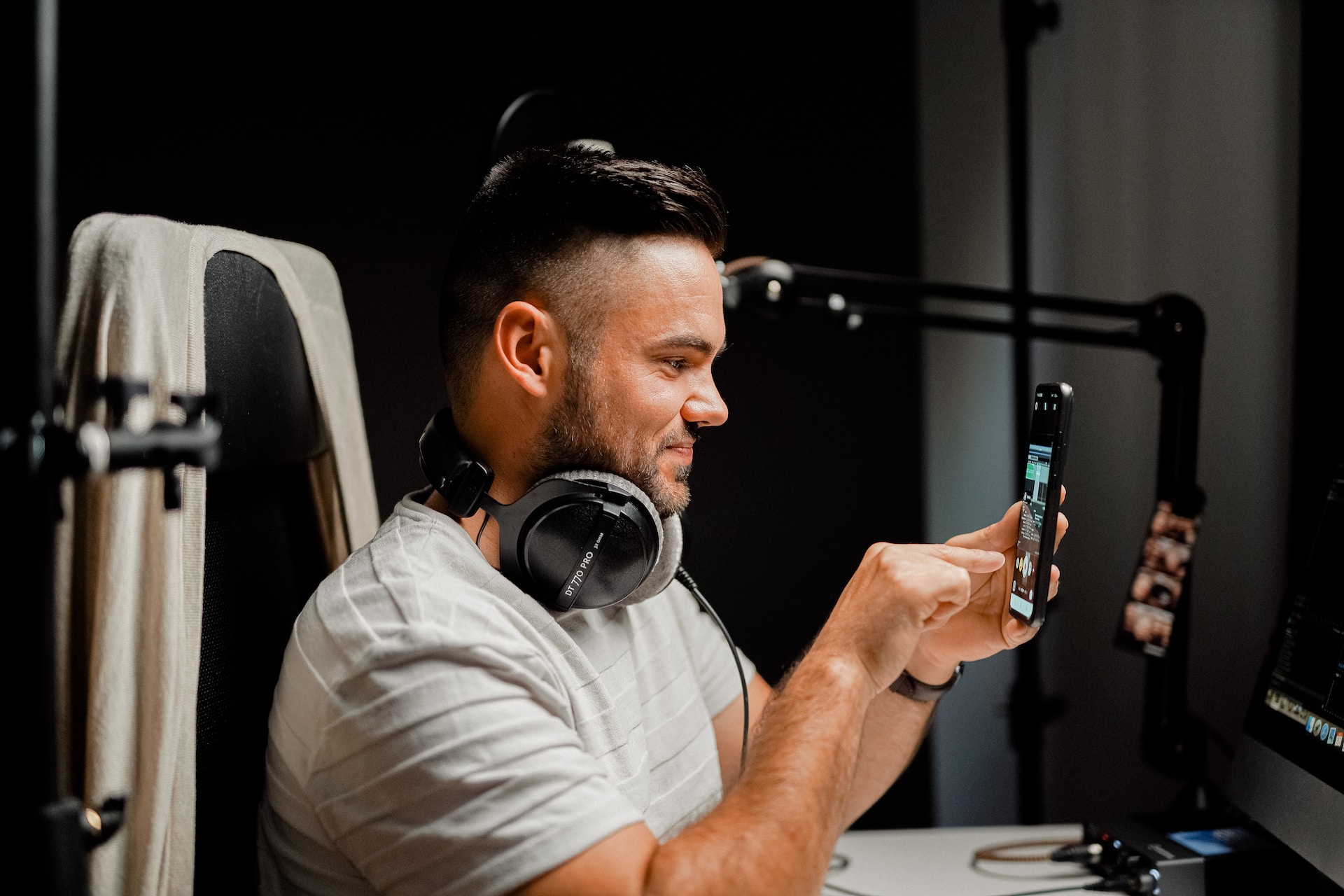How to Learn an Accent for Voiceover Work Quickly
Oct 11, 2023
Mastering the Art of the Accent for Standout Voice Performances That’ll Get You Seen (and Heard!)
When it comes to becoming a talented voice actor that gets booked consistently, standing out can be a game-changer. After all, having that little something extra can make a difference for casting directors and project managers who are looking for a very specific type — and not just one of the bunch.
One sure way to do this? Knowing how to learn an accent. Whether you're diving into a new accent or refining one you're familiar with, mastering the art of speaking like “someone else” is a powerful tool.
Not only does it open the door for you to play more characters, but it also shows people that you’re capable of adapting and growing at the same time.
But before you can think about booking gigs that require you to learn an accent — let’s take a look at the bigger picture.

The Importance of Accents in Voiceover Work
Accents have always played a pivotal role in storytelling. Just ask someone like certified accent pro, Meryl Streep — she knows what she’s doing.
When done right, accents can instantly provide background information about a character, which ultimately gives added depth and context without the need for lengthy exposition.
In terms of voice-over work — where visuals might be absent — these tonal and linguistic differences become even more important. For one, they paint a vivid picture in the listener's mind, transporting them to different regions or even countries. And, on the other hand, they offer emotional depth and nuance to a character's speech.
Not just that, but accents can also help enhance a project in terms of authenticity, making characters more relatable and situations more believable.
How to Learn an Accent
Mastering a new accent can be a challenging yet rewarding process of trial and error (and a few not-so-nice critiques in between).
And while each person's learning process might differ, there are several strategies that have been universally effective in helping actors — both voice, theater, television, and cinema stars — hone their accent skills.
Let's look a little deeper into these methods:
1. Listen and Mimic
At the heart of learning any accent is attentive listening. Dive into movies, TV shows, radio broadcasts, or even podcasts that predominantly feature the accent you want to learn and get acquainted with it. But this isn’t just about “listening” — it’s also about understanding the rhythm, intonation, and stress patterns that define the accent.
As you go deeper and deeper yourself, make sure you’re also taking the time to repeat specific sentences, phrases, or even individual words, all of which will allow your vocal cords to adjust to the new sounds.
2. Use Accent Training Apps
Nowadays, there’s a variety of different resources out there designed to assist with accent training. For example, Accents & Dialects for Stage and Screen — available as an eBook with embedded sound files — was specifically created to guide users through various accents, offering step-by-step instructions and exercises.
These types of tools can help voice actors how to learn an accent by breaking down sounds and teaching tongue positions, which can accelerate your learning process.
3. Work with a Coach
Remember the 1964 hit My Fair Lady? Or am I showing my age here? In a very famous scene, Henry Higgins — a phonetics professor — helps the lead, Eliza Doolittle, in transforming her Cockney accent by famously emphasizing sounds with exercises like "The rain in Spain stays mainly in the plain."
While this is an overly dramatized example, it does highlight the importance of professional guidance when it comes to mastering an accent. A seasoned dialect coach can offer invaluable insights, give real-time feedback, correct even the slightest mistakes, and provide exercises tailored to your needs.

4. Record Yourself
Sometimes, we can be our best critic. Recording yourself while you speak in the desired accent you’re trying to learn will allow you to play it back multiple times as you analyze your performance. This ultimately gives you the chance to identify areas where you sound authentic and areas that might need more work.
5. Practice Regularly
The adage "practice makes perfect" is a well-trodden cliché for a reason: it’s true. Much like trying to master a musical instrument, consistency in practicing your chosen accent is essential and cannot be overstated. Even if it's just repeating a few lines every day, regular practice will solidify your learning and ensure that you don’t lose the progress you’ve made.
Give it a go while you’re driving, in the shower, or running errands.
6. Engage in Conversations
Nothing tests your grasp over an accent more than real-time conversations. If you have friends or acquaintances who are native speakers of the accent you're learning, don’t be shy… engage with them!
If not, there are numerous online platforms where you can connect with native speakers who are also willing to converse. These interactions will not only test your current proficiency but also provide an opportunity to pick up subtler nuances and colloquial phrases. Plus, they’re also a great way to shake off those nerves.
Popular Accents in Voiceover Work
While there's a broad spectrum of accents worldwide, certain tones tend to be more in-demand in the voiceover industry — especially those from the US and some international regions.
Here's a breakdown of some of the most sought-after accents when it comes to voice over work:
1. Neutral American
The Neutral American accent, sometimes referred to as 'Standard American,' is one of the most widely recognized accents globally. Often heard in international media, this accent isn't pegged to a specific region in the U.S., which makes it universally appealing. It's also incredibly versatile, fitting seamlessly into various narratives.
For example, if a commercial is targeting a national audience or if a film character's background isn't tied to a particular American region, the Neutral American accent is the go-to choice.
2. Southern
The Southern accent is rich with history and diversity. While it can stretch from the sultry drawls of Texas to the lilting tones of coastal Georgia, each sub-region has its unique twist. In entertainment, a Southern accent can paint a picture of warm summer nights with fireflies, or mysterious tales set in historic plantations.
Think of world-famous characters like Forrest Gump or Scarlett O'Hara: their Southern tones add depth and dimension to their personalities, making them unforgettable.
3. New York City
The New York City accent is as diverse as the city itself. From the assertive tones of Wall Street bankers to the lively chatter of street vendors in Brooklyn, this accent captures the city's essence. In media, it's frequently used to instantly identify a setting or background.
For instance, characters like Joey from "Friends" or Carrie from "Sex and the City" wear their New York accents as a badge of honor, showcasing their city roots.
4. English (Received Pronunciation)
The Received Pronunciation (RP) — or what many call the "Queen's English" — is often associated with the British upper class. While it's not the most commonly spoken accent in England, its prominence in British media and literature makes it universally recognized (and loved).
Characters like Sherlock Holmes or even the portrayal of the British Royal Family in shows like "The Crown" often use RP, lending an air of sophistication, intelligence, or authority to the narrative.

5. Australian
Australia's accent is both familiar and exotic to many. When people think of this accent, they might imagine the vast Outback, kangaroos, or the iconic Sydney Opera House.
In movies, characters like Mick "Crocodile" Dundee showcase the rugged and adventurous spirit of Australia. Meanwhile, more contemporary media might use the accent to represent urban stories that feel more approachable and relatable — no matter where you are.
6. Irish
The Irish accent, with its musical and lyrical quality, has enchanted audiences worldwide. It can range from the soft tones of Galway to the more pronounced sounds of Dublin.
Think of the emotional depth someone like Saoirse Ronan brings to her roles or the whimsical tales narrated by Irish storytellers in movies or books. The Irish accent is incredibly versatile — fitting narratives that are both light-hearted and deeply emotional.
7. Mid-Atlantic
The Mid-Atlantic accent, also sometimes referred to as the Transatlantic accent, is a unique blend that's not quite American and not quite British. Historically, it was taught in early 20th-century American boarding schools and was a mark of the elite. In the entertainment world, it was frequently adopted by Hollywood stars of the golden age, like Katharine Hepburn and Cary Grant.
Exuding an air of vintage sophistication and elegance, it quickly transports you to a 1940s film set. Although it’s less common in modern media, it remains a sought-after accent for roles that require a timeless and refined character backdrop.
The Dangers of “Playing an Accent”
In spite of how great knowing how to nail an accent might be, it's also crucial to approach accents with sensitivity and respect.
When actors "play" an accent without respect for its cultural and historical context, it can quickly become a caricature. This not only diminishes the authenticity of a performance but can also perpetuate stereotypes — potentially offending or marginalizing communities represented by that accent.
Take, for instance, exaggerated Indian or Chinese accents. Rather than providing a genuine representation, they often propagate a narrow, and often incorrect, portrayal of vast and diverse cultures — especially if they’re played by someone white.
Avoiding the trap of playing an accent means recognizing the difference between celebration and harmful exaggeration.
Where Are Different Accents Most Needed?
Accents typically provide authenticity and depth to diverse media projects. For voice actors adept with multiple accents, knowing where they're in high demand can be a game-changer.
Here's a quick look at areas where different accents are most sought after:
1. Animated Film and Television
Accents help in transporting viewers to specific destinations or time periods. Moreover, international productions often look for voice actors for dubbing roles to maintain character authenticity.
2. Video Games
With expansive storylines and global settings, video games are in constant need of accents. Whether it's a game based in Paris or an Australian outback adventure, the right accent can enhance player immersion.
3. Audiobooks and Narration
A story's setting and characters often determine its ideal narrator. A novel based in London would resonate more if voiced with an English accent, ensuring listeners get an authentic experience.

4. Advertising and Commercials
Brands target specific feelings or demographics using accents. An ad for an Irish beer, for instance, might leverage an Irish accent to set the right tone.
5. Educational Content
Language learning platforms require native accents — typically ones that are the most neutral — to provide learners with genuine listening experiences.
Once the project scope is clear, online platforms like Academy Voices can pair actors looking for voice work with clients who need specific accents or vocal characteristics for their projects. This not only streamlines the hiring process but also ensures that each project gets the perfect voice match — enhancing authenticity and overall quality.
Accents On Your Mind? You’re On the Right Track…
At the end of the day, mastering an accent isn't about innate talent — it actually boils down to confidence, dedication, and regular practice. Nowadays especially, the world of voice acting is vast, and having the ability to switch between accents can be your ticket to varied and engaging roles.
Looking to take your voiceover skills to the next level? A VO’s Journey offers specialized VO training that’ll help you get ahead in everything from learning how to work a specific software to marketing yourself right. Dive into our expert-led modules and set yourself on the path to success today!






